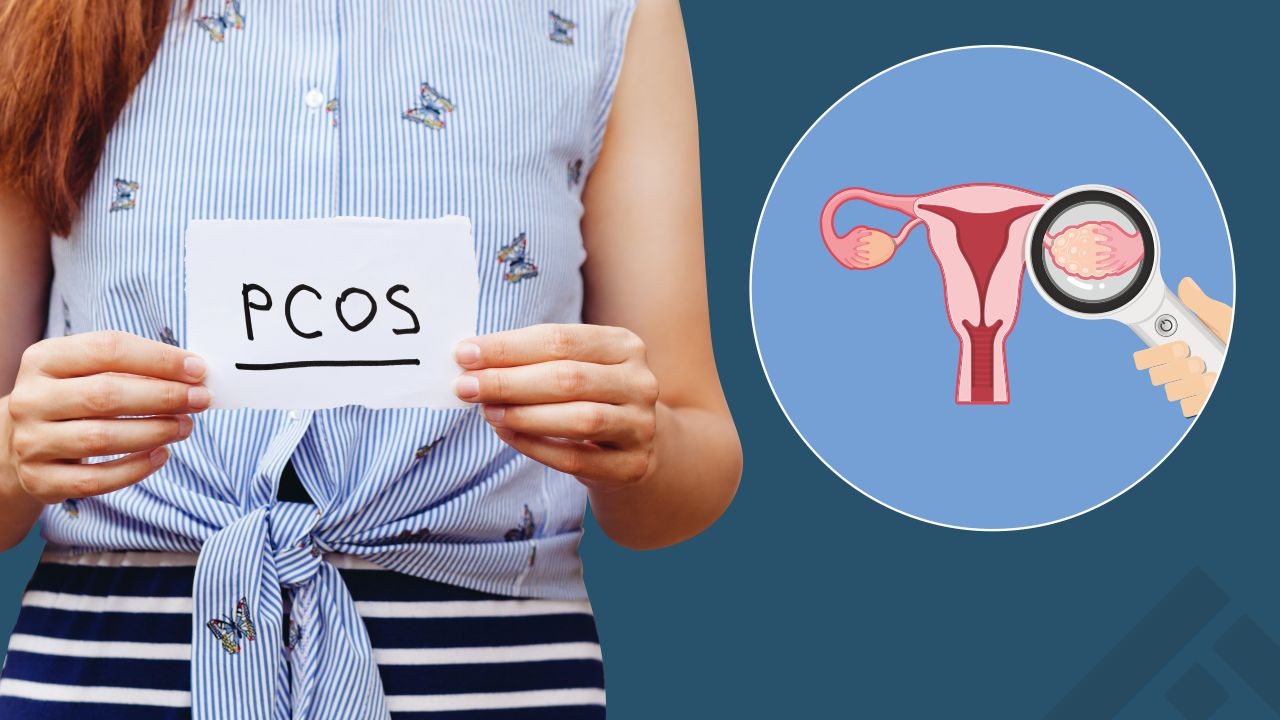PCOS and You: How to Identify and Treat This Condition

Patients diagnosed with Polycystic Ovary Syndrome, PCOS, often find themselves confused and apprehensive about the next step concerning their health and future fertility. This may not be the case in all patients. Some welcome this with a sigh of relief since now they can know what the underlying problem is. This way, they can effectively come up with a solution to their current situation.
One thing though, it is not advisable to base your next decision solely on the research you do only. It is best to consult with a professional healthcare giver on the best course of action. This brings the question,
What is PCOS?
PCOS is a hormonal imbalance disorder that is present in one in every ten women within the reproductive age. PCOS is often treated as a disease when it is a cluster of symptoms that result from problems related to ovulation and increased production of androgens. POC was named from the appearance of several follicles in the ovaries that were only visible through a pelvic ultrasound.
How to Identify PCOS
Before scheduling a doctors appointment to seek a definitive answer on the exact condition you are afflicted with, you need to look for signs and symptoms to help with identifying this condition. Some of the signs and symptoms include
Signs and Symptoms of PCOS
PCOS symptoms vary from one person to another, with some starting to exhibit some during their first menstrual cycle at puberty while others begin to show much later due to weight changes. Signs and symptoms also vary. However, you can schedule an appointment when you experience the following;
Irregular periods- these are the most common indicators for PCOS. They can either be infrequent, irregular or prolonged. A typical example is when you experience abnormally heavy periods, more than 35 days between your periods and less than nine periods with a year.
Increased androgen- this is characterized by increased levels of male hormones. Excess androgen can result in physical signs such as occasional severe acne, male pattern baldness and increased facial and body hair.
Polycystic ovaries- your ovaries tend to enlarge with follicles covering the eggs. This may affect the normal functioning of your ovaries.
These signs and symptoms can become more severe if you are suffering from obesity. You need to schedule an appointment with your doctor when you develop concerns over your menstrual cycle, go through infertility issues, or notice signs of increased androgen.
Diagnosing PCOS
When it comes to diagnosing PCOS, there is no definitive test to diagnose. In most case, your physician may begin with discussions on your medical history, more so on your menstrual periods and weight changes. The doctor can then do a physical exam which involves checking for increased hair growth, insulin resistance and acne. To get all the boxes crossed, the physician can recommend further tests such as;
Blood tests- This involves analyzing your blood work to measure your hormone levels. In most cases, these tests do not involve testing other causes of excess androgen and menstrual abnormalities that mirror PCOS. In some cases, the doctor can recommend additional tests on your blood sample to measure your glucose tolerance, fasting cholesterol and triglyceride levels.
A pelvic exam- the physician, can also manually and visually examine your productive organs to check for masses, growth and any form of abnormality.
An ultrasound- This involves your doctor checking the thickness of the lining of your uterus and the appearance of the ovaries. Doctors today use a transducer, a device that resembles a wand, to perform a transvaginal ultrasound. The transducer is placed inside the vagina and emits sound waves that are then translated onto images on a digital screen.
If any of these tests show any signs of PCO, the doctor can initiate further tests to check for any signs of complications. These tests include,
- Screening for anxiety or depression.
- Tests for obstructive sleep apnea.
- Periodic checks for glucose tolerance, blood pressure, cholesterol and triglyceride levels.
Before going over the recommended forms of treatment for this condition, you need to understand some of the cause of PCOS. These include;
Excess insulin -increased insulin levels tend to influence androgen production, resulting in complications during ovulation.
Low-grade inflammation- this is used to referrer to the production of white blood cells to fight infection. Patients suffering from PCOS are known to have a type of low-grade inflammation responsible for stimulating polycystic ovaries to produce excess androgen, which can lead to heart and blood vessel complications.
Heredity- some studies suggest have linked certain genes to PCOS.
Treatment Options for PCOS
Most treatment options for PCOS are centered on managing most of the signs and symptoms such as acne, obesity, infertility and hirsutism (increased facial and body hair growth). You can decide to go for medication or implement a few lifestyle changes.
Lifestyle Changes
Your physician may recommend a combination of moderate exercises and a low-calorie diet to help with weight loss. Any slight change in your body weight can significantly help boost your chances. In some cases, this can as well be used to boost the effects of the medications prescribed.
Medication
There are several treatments plans the doctor can recommend dealing with every symptom individually when it comes to medication.
Birth control pills-this will help decrease androgen production and regulate estrogen production.
Progestin therapy- taking progestin for at least two weeks between one to two months can effectively help regulate your periods and reduce chances of endometrial cancer.
You can also get a prescription for medications such as clomiphene, Letrozole, Metformin and Gonadotropins to help with your ovulation. While for excessive hair growth, you can get Spironolactone, Eflornithine and maybe even electrolysis to destroy the follicles.
Natural Remedies
There are lifestyle and home remedies that you can follow to help manage your condition and inform you how to heal PCOS, these include;
Maintaining a healthy weight– keeping your weight in check can help reduce the amount of insulin produced, reducing the amount of androgen, which helps restore your ovulation.
Be active- With regular fitness programs, you can effectively manage insulin production and reduce the chances of getting diabetes.
Low-calorie intake- consult with a nutritionist on a low carbohydrate meal.








